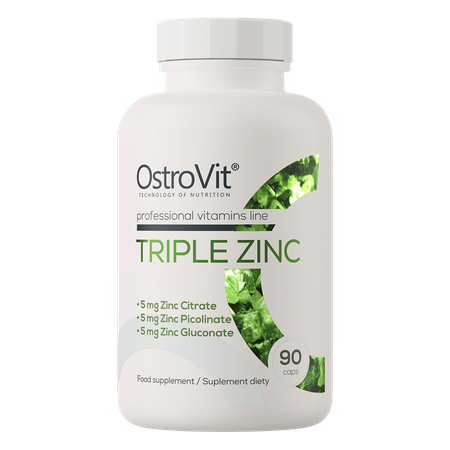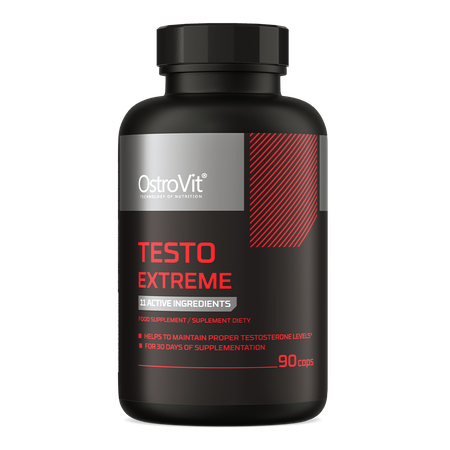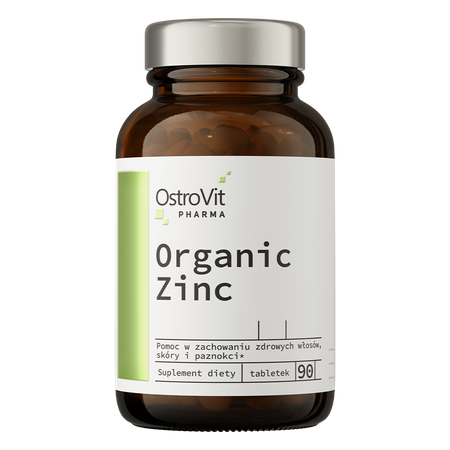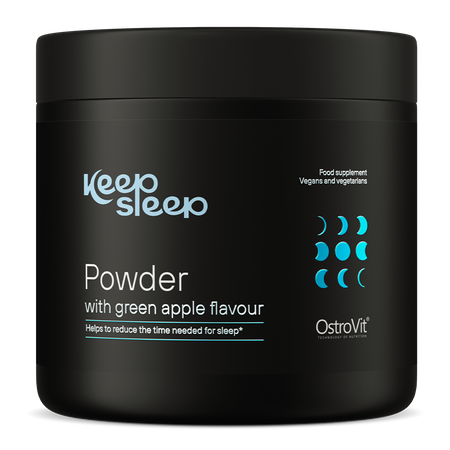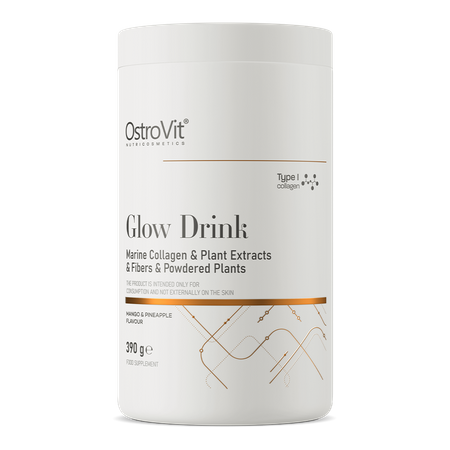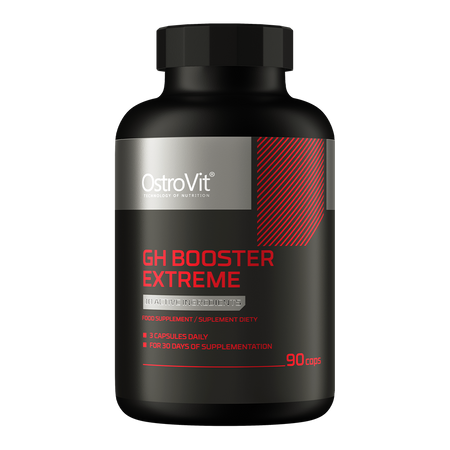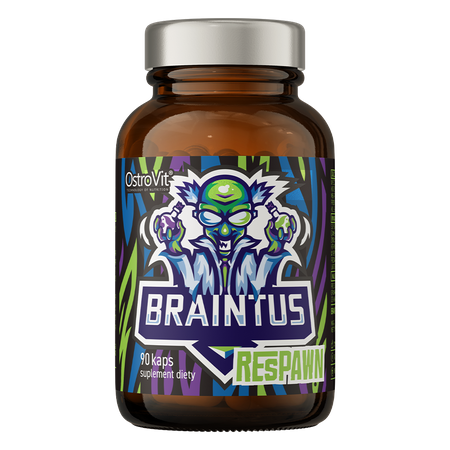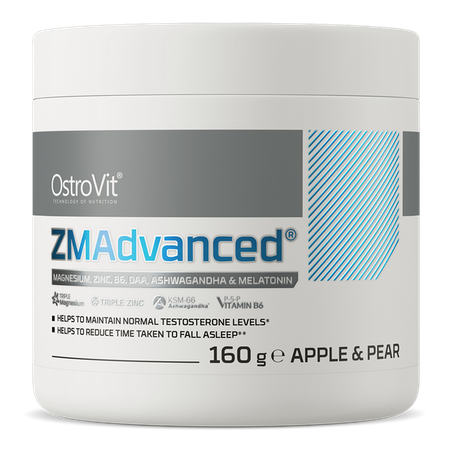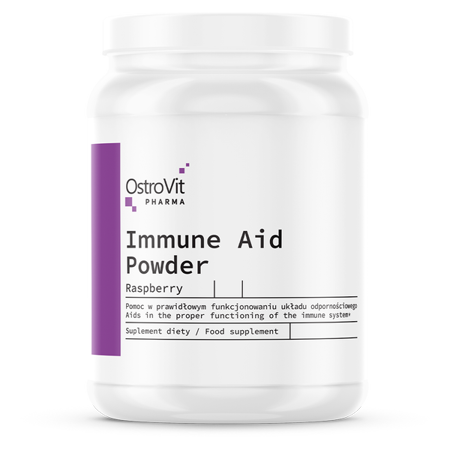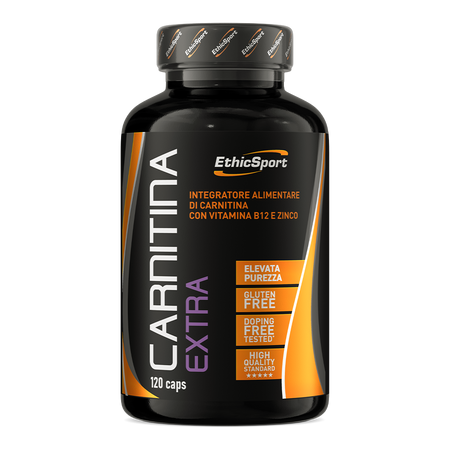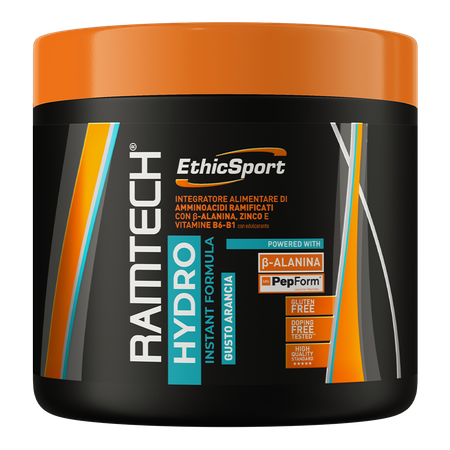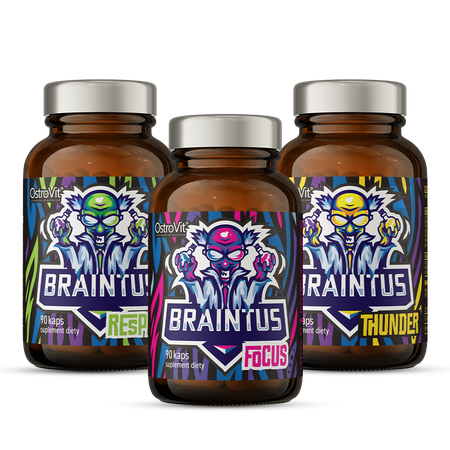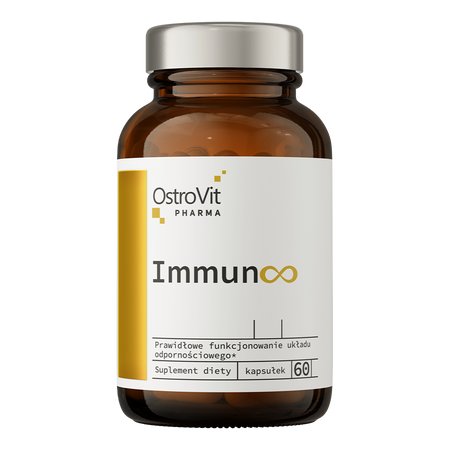Zinc
Zinc, although classified as a trace element, performs many important functions in the human body. The element is a catalyst for many reactions and a component of enzymes. It affects the functioning of the immune system, vision, fertility and proper growth. Although the demand for this ingredient is not high, the appropriate supply of micronutrients is extremely important, and the deficiency, as well as excess, results in many serious consequences.
What is zinc?
Zinc is a mineral component that is classified as trace elements, also known as microelements.
Microelements are compounds whose content in the human body is less than 0.01%, and the daily requirement for this element does not exceed 100 mg.
Zinc absorption occurs in the intestines, mainly in the small intestine. It is an element of health that is necessary for the proper functioning of the body.
About 90% of the micronutrient is found in bones and muscles and the remaining amount is stored in body fluids and other body tissues.
Functions and role of zinc in the body
Zinc is a component of over 300 enzymes, including those that are involved in the synthesis of protein or nucleic acids. In addition, the element is a catalyst for many reactions, participates in the transformation of proteins, fats and carbohydrates. It also affects the synthesis and functioning of steroid hormones, and what's more, it can provide stability of cell membranes.
The microelement also makes it possible to feel taste and smell. It takes care of the work of the immune system. It also protects the body against free radicals. It participates in the processes of replication and transcription of genetic material, it also participates in the expression and stabilization of genes.
Zinc plays an important role in maintaining homeostasis of the body, affects the absorption of vitamins, also regulates the acid-base balance. It participates in the processes of blood coagulation, also cares for the proper functioning of the eye. It can support the proper secretion of insulin and thus affects the proper functioning of the pancreas.
The element is also responsible for the metabolism of alcohol and the reduction of the toxic effects of heavy metals. It affects the proper functioning of the reproductive organs. Zinc also determines the development of the fetus and the maintenance of pregnancy. It is essential for proper growth and development and for bone building. It also affects the central nervous system and has a positive effect on the ability to remember and concentrate.
Sources of zinc in food
Zinc is found in many foods, so to ensure an adequate supply of the element, you should take care of a healthy and balanced diet.
The source of the element are both animal and vegetable products. Better bioavailability, however, is distinguished by zinc from animal products.
The micronutrient can be found in in products such as:
- liver,
- eggs,
- rennet cheese,
- meat,
- buckwheat groats,
- pumpkin seeds,
- dark bread,
- wheat bran,
- legume seeds,
- seafood.
Zinc demand
The demand for zinc depends on many factors incl. the degree of assimilation of the element from the diet, interaction with other compounds or physiological state.
An increased need for micronutrients can be observed during pregnancy and lactation, as well as among children in the period of intensive growth and development.
According to the Nutrition Standards, the recommended daily intake of the element is 8 mg among women and 11 mg in the group of men. During pregnancy, this value is equal to 12 mg, while during lactation - 13 mg. Adolescents should provide the body with 8 to 11 mg of zinc every day, depending on gender and age.
Zinc deficiency
Causes of zinc deficiency in the body
Zinc deficiency may result from malabsorption of the element in the body. This, in turn, can be caused by environmental pollution, stress, the use of stimulants or a poorly balanced diet.
The cause of zinc deficiencies in the body are also diseases of the gastrointestinal tract, which impair and interfere with the absorption of valuable components in the intestines. The increased demand for an element that is not covered also contributes to the occurrence of undesirable symptoms.
Zinc deficiency is mainly exposed to people who abuse alcohol, as well as the elderly or vegetarians.
Symptoms and effects of zinc deficiency in the body
Among children, zinc deficiency can affect growth inhibition and delay psychomotor development, as well as reduce the body's resistance to infections.
In turn, among adults, the following symptoms can be observed::
- hair loss,
- taste and smell disorders,
- reduced immunity of the body - greater susceptibility to viral and bacterial infections,
- deterioration of memory and intellectual performance,
- decreased appetite and weight loss,
- lowering testosterone levels,
- acne lesions,
- thyroid dysfunction,
- nervousness and irritability,
- erythematous skin changes,
- night blindness,
- impaired wound healing.
Reduced zinc concentration among pregnant women may contribute to fetal development disorders, nervous system defects, as well as promote premature birth and low birth weight.
Excess zinc in the body
Excess, as well as deficiency of the element in the body, is of great importance and can contribute to the occurrence of undesirable symptoms.
Causes of excess zinc:
Providing zinc with the diet to the body does not contribute to the consumption of its excessive amounts.
Most often, the cause of an overdose of the element is improperly used supplementation.
Symptoms of excess zinc
Acute symptoms of poisoning include nausea, diarrhea, abdominal pain, weakness, headache, loss of appetite.
Long-term, excessive supply of zinc to the body may contribute to lowering the body's immune resistance, reducing the concentration of HDL cholesterol ("good cholesterol"), as well as negatively affect the metabolism of iron and copper.
Zinc supplementation - recommended for whom?
Zinc is not always supplied to the body in the right amount. Among people exposed to deficiencies of this ingredient, it is worth considering the use of dietary supplements containing a valuable microelement.
It should be remembered that alcohol, fiber, phytates and oxalates reduce its bioavailability, while animal protein increases its bioavailability.
Zinc preparations should not be taken together with selenium-rich supplements, because these elements act antagonistically, which results in the lack of expected supplementation results.

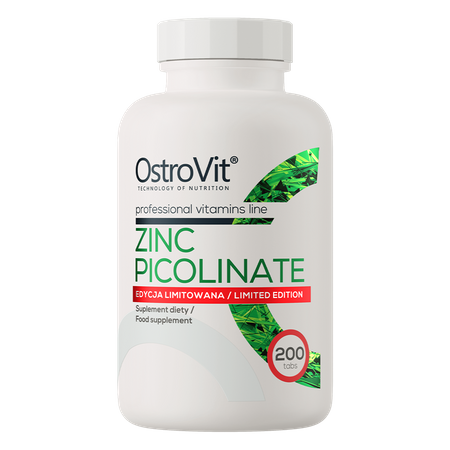
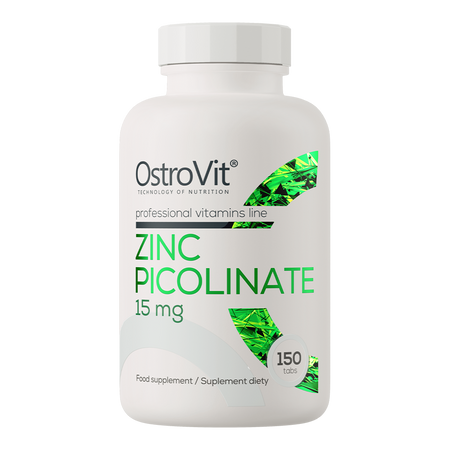
 Bestseller
Bestseller